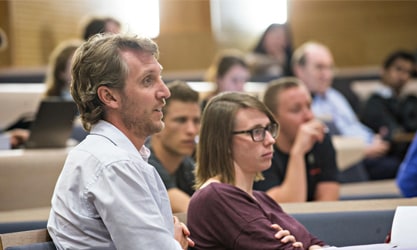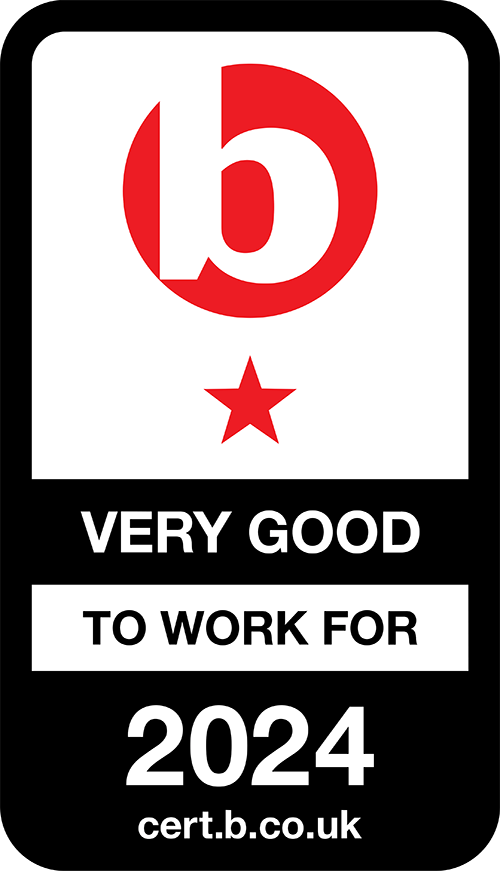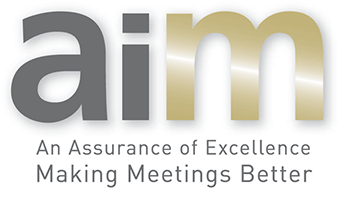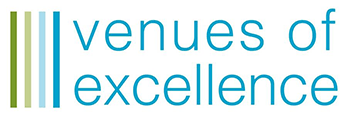
Download our infographic now for essential tips on planning large international academic conferences.
Are you wanting to organise a large academic conference that brings together the best minds in your field from all over the world?
- Getting expert professional help
- Picking the right venue
- Dare to be different
- Event Management - luxury or essential?
Download our infographic now:
Case Study:
International Conference of Conversations Analysis
The International Conference of Conversations Analysis is a quadrennial conference organised in partnership with the International Society for Conversation Analysis (ISCA). Recently, it has been held in Copenhagen, Helsinki, Manheim and Los Angeles. The event sees experts in linguistics and sociology come together to discuss the language we use and the way we interact with each other.
The event was first held in 2002 when a like minded group of individuals gathered to discuss their research and work in the fields of linguistics and sociology. In an unusual turn of events, rather than an association creating an event to further engage members, the attendees of the event created ISCA at their third event (Manheim 2010) to allow greater engagement throughout the rest of the year. The success of the events and the thriving community has ensured that ISCA continues to flourish and grow.
For 2018, the organisers wanted a truly accessible event in terms of location due to the association’s increasingly global audience. They needed a range of quality accommodation, facilities capable of hosting over 550 delegates for the plenary, plus breakout spaces for up to 12 concurrent sessions. It was also essential the conference take place in an academic venue with a reputation as a centre of excellence in the field of Conversation Analysis. With Professor Paul Drew acting as ambassador and lead organiser, Loughborough University and its Imago Venues portfolio was the perfect solution.
In particular Paul wanted to bring success stories from the previous event at UCLA in America to the 2018 event. One in particular was the creation of pre-conference workshops – effectively opportunities to get hands on and train in key areas ahead of the main event. This concept stretched the whole event by another 2.5 days, whilst adding extra pressure in terms of accommodation and the need for a wide variety of sessions to run concurrently. Imago was able to support this need, which incorporated over 250 people and without which Paul Drew felt the event would have been very different:
People need hands on training – you learn by doing. Most importantly the workshops give people a chance to bond, participate and learn ahead of the main conference. This means that when the main event starts it is very different to other academic events because there is a shared background and shared sense of participation.
Paul’s involvement meant that someone with a huge amount of passion and subject knowledge was taking the reins for an event incorporating more than 500 sessions across six days. To support him through the logistical elements of the event, Imago Venues also provided comprehensive event management services. They supported Paul throughout the entire event journey – from planning and logistics through to execution and event finances. Most importantly, however, the Imago Venues team brought a creative approach that saw previously formal dinners turned into networking BBQs, creative themeing and an event app that was accessed more than 20,000 times during the event.
The Imago team’s imagination was great and their ability to respond fantastic. Their ideas were completely different to anything our delegates have ever experienced before. In particular something as simple as serving fish and chips outside was a masterstroke, it was really British and made the event a party rather than a dinner.
The event was the largest and most diverse ever organised by ISCA, with only 17% of attendees from the UK, a fact that truly demonstrated Loughborough’s accessibility as delegates came from US (14%), Finland (12%), Japan (8%), Sweden (7%), Germany (7%) as well as China, Costa Rica, South Africa and elsewhere. Delegates needed easy access to the venue from hub airports, which Loughborough offered.
Also important was the range of accommodation available to attendees. Delegate ranged from high level academics to students, meaning that there was a wider variety of expectations when it came to both price and quality of the accommodation. Again, Imago met their needs, with even the cheapest accommodation available at Loughborough significantly better than that offered at the previous conference in 2014. Despite this, the cost was lower meaning delegates felt they achieved real value for money. Similarly speaking other venue accommodation was an improvement on previous years – right up to the highest paying delegates who made the use of the 4-star Burleigh Court Hotel.
Imago brought a commercial and professional edge to the event, ensuring it was delivered flawlessly and when necessary completing tasks and arranging elements the organisers themselves hadn’t even considered necessary.
Reflecting on the event, Paul commented that Imago truly understand the needs of an organiser, whilst their position as part of the wider Loughborough University landscape provides a much-needed insight into the world of academia – factors which were also key to Imago Venues winning a National Venue Award earlier in the year in the academic venue category.
I cannot speak too highly of the service Imago provided. Delegates who had been to all, or some, of the previous conferences agreed that this was outstandingly the best. The credit for this success goes to Loughborough University’s facilities and infrastructure and Imago’s brilliant management – all world-class.
These links to academia were a subject that Paul returned to several times when reflecting on the event. In particular he felt that Imago and Loughborough University as a team offered a strong balance of the commercial and academic. Throughout the whole process there was the professionalism to keep things running smoothly and add value where necessary, whilst the understanding of academia meant the spirt and ethos of the event were not lost in the face of profit margins and the bottom line.
Due to the support and professionalism of the Imago team, the event generated a significant surplus, which will benefit both the University and ISCA. Whilst it is easy to assume this is due to high conference fees and low costs the reality is that the Imago team supported the organisers throughout the process, taking on additional work where necessary to deliver the event. Rather than outsourcing to an agency, Imago was able to handle all the logistics and in turn manage key costs that could have spiralled under other circumstances. There is no denying the fact that Imago offered better value for money than historic venues, but the value came in several forms – the most important of which was the service levels and quality of the Imago offering. Above all else this collaborative approach and understanding of the market clearly shows the added value and opportunities available to those looking to use an academic venue with a real understanding of events for their conferences.







